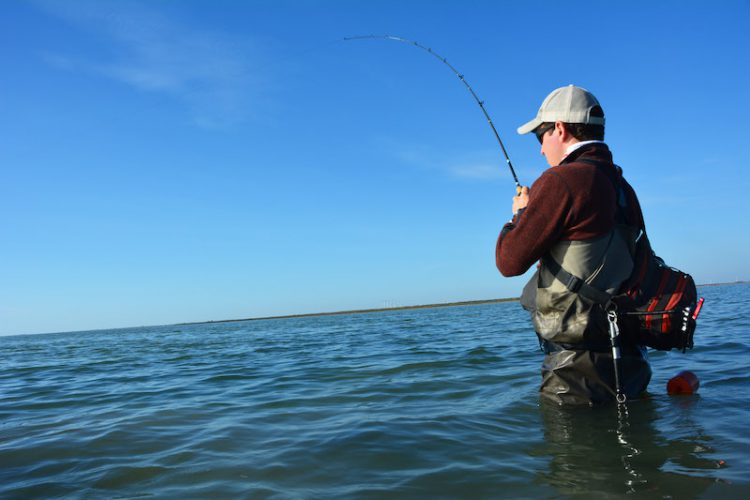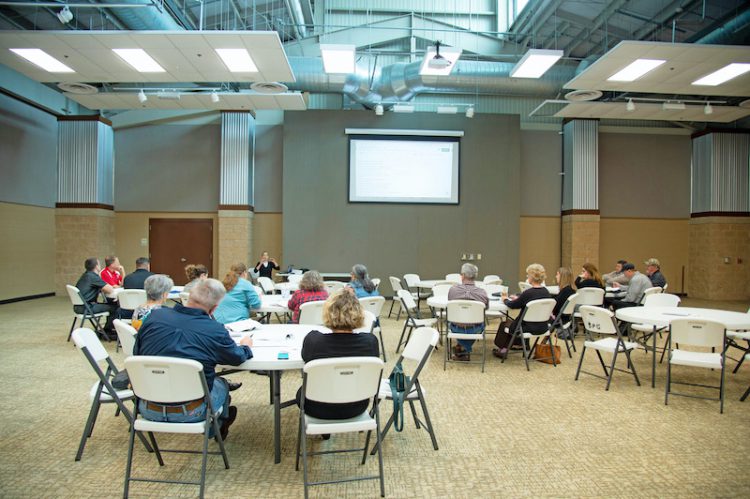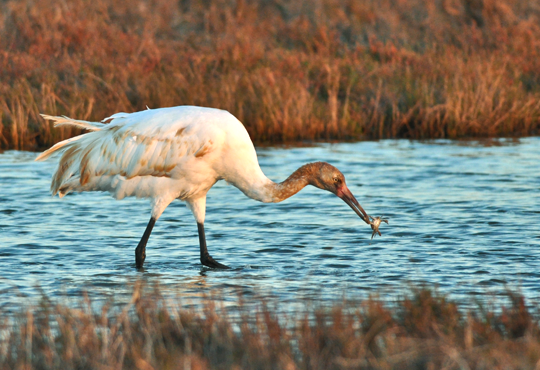Full Title: Co-production of a water flow decision tool to support resource management
This project explored the feasibility of a freshwater inflow decision tool to provide managers with a better understanding of the impact of allowing water to flow to the coast, and how to maximize environmental, social, and economic benefits while adapting to changing conditions over time.
Lead Investigator: David W. Yoskowitz, Harte Research Institute for Gulf of Mexico Studies at Texas A&M University – Corpus Christi, david.yoskowitz@tamucc.edu
Natural Resource Manager: Robin Riechers, Texas Parks and Wildlife Coastal Fisheries
Project Team: David Bradsby (Retired, formerly Texas Parks and Wildlife Coastal Fisheries); Christine Hale, Kara Coffey, and Diana Del Angel (Harte Research Institute for Gulf of Mexico Studies at Texas A&M University – Corpus Christi)
Federal Program Officer/Point of Contact: Frank Parker (frank.parker@noaa.gov)
Award Amount: $124,998
Award Period: September 2021 – August 2022
Why it matters: Freshwater inflow (FWI) is the portion of managed water from streams or rivers that is allowed to flow into bays and estuaries. FWI provides nutrients and sediments to bays and regulates the salinity of estuaries. FWI has clear ecological functions, but its link to socioeconomic outcomes is unclear. Current models used to inform water permitting and planning decisions could be enhanced with improved linkages between FWI, environmental conditions, and socioeconomics. The overarching goal of the project was to explore feasibility of a freshwater inflow decision tool that includes environmental conditions and socioeconomic outcomes. Such a tool would provide managers with a more holistic understanding of the impact of allowing water to flow to the coast, and how to maximize total benefits (environmental, social, and economic) while adapting to changing conditions over time.
What the team did: The team held two workshops with Texas-based water managers and users. During the first workshop, participants were asked to create a list of social, cultural, economic, and human values related to water and connect those values to management actions. The second workshop invited participants to identify how to measure socio-cultural-economic outcomes related to agricultural water conservation.
Summary of outcome: The project team used the information gathered at the two workshops to develop a database called “Values-Based Outcomes Related to Freshwater Inflow in the Watersheds of the Mid-Texas Coast”. This dataset is a collection of human values related to freshwater resources, watersheds, and coastal and ocean habitats. These values were linked to the potential socio-economic outcomes of freshwater management and potential metrics for monitoring changes in these systems. The team also established a network of water managers and users to begin co-developing a concept model for FWI management strategies common to Texas water planning. In particular, the team plans to explore water quality management decisions and outcomes related to regional wastewater infrastructure where independent public bodies share the responsibility of providing wastewater services to their customers.
Not applicable
Co-production of a Water Flow Decision Tool to Support Resource Management, Harte Research Institute
Not applicable
 Official websites use.gov
A .gov website belongs to an official government organization in the United States.
Official websites use.gov
A .gov website belongs to an official government organization in the United States.
 Secure .gov websites use HTTPS
A lock or https:// means you’ve safely connected to the .gov website. Share sensitive information only on official, secure websites.
Secure .gov websites use HTTPS
A lock or https:// means you’ve safely connected to the .gov website. Share sensitive information only on official, secure websites.


